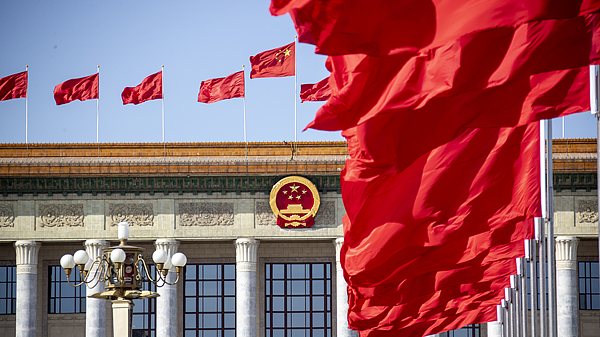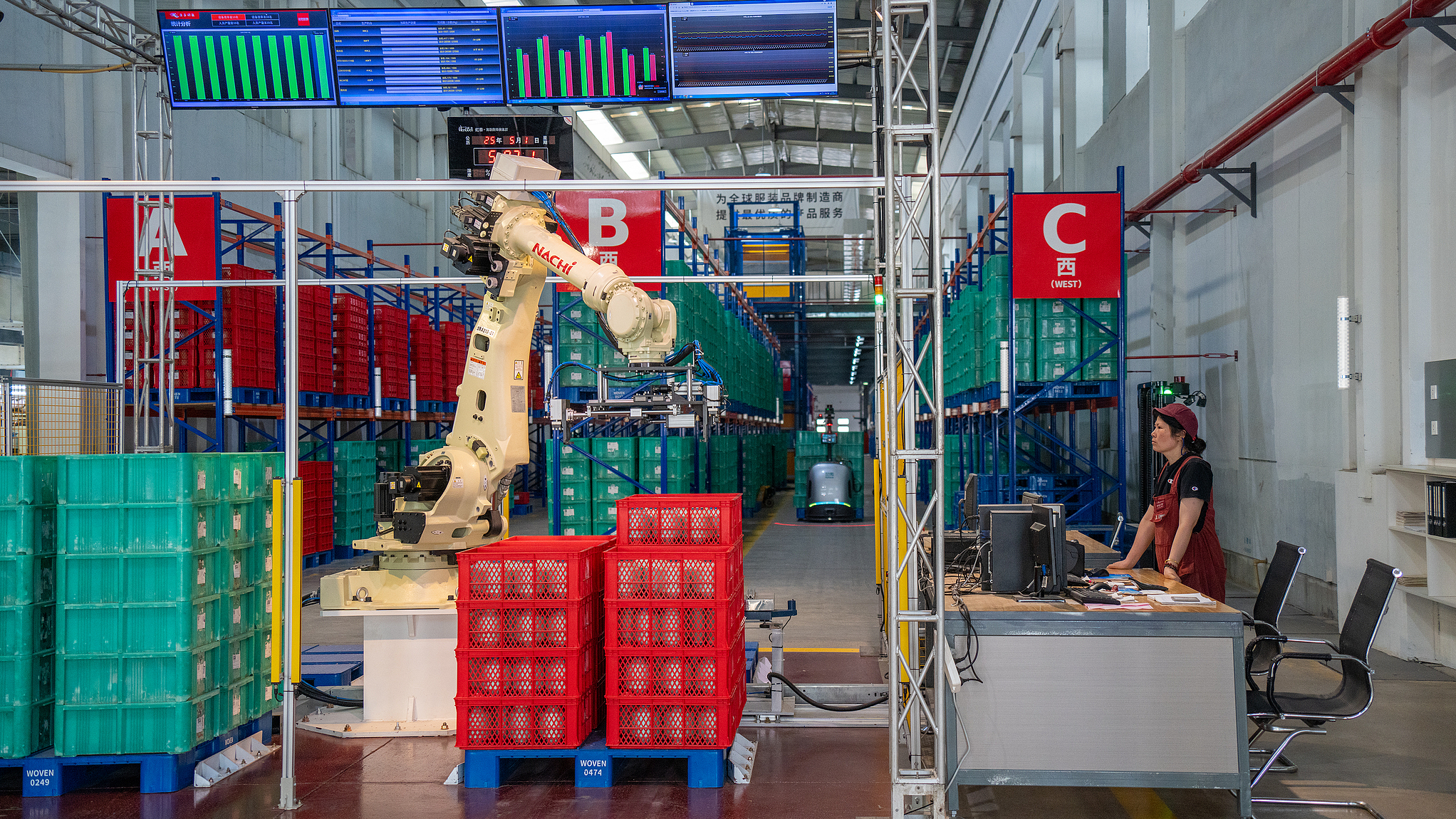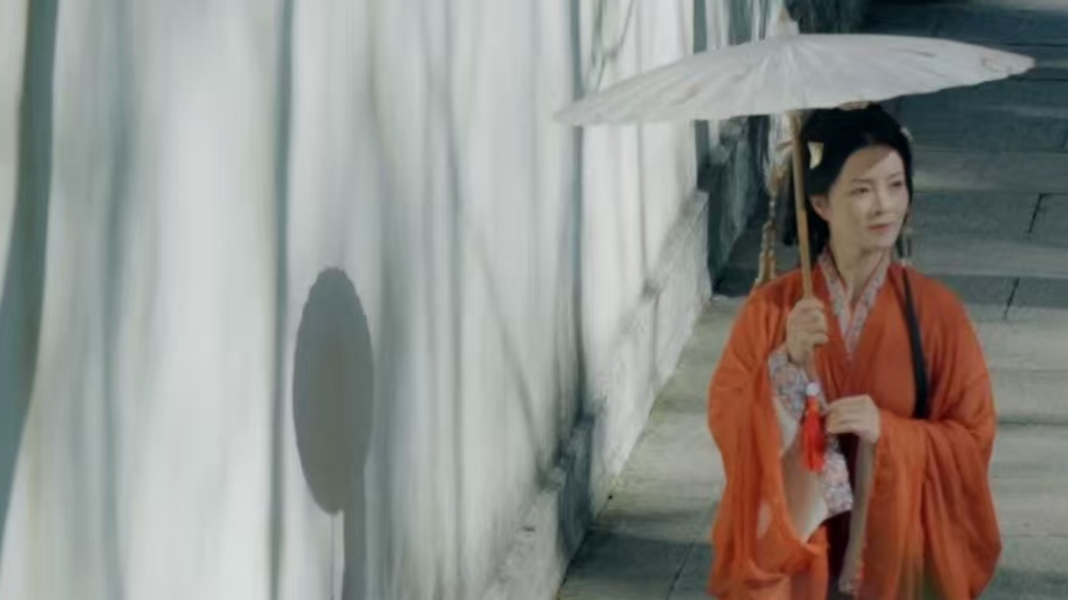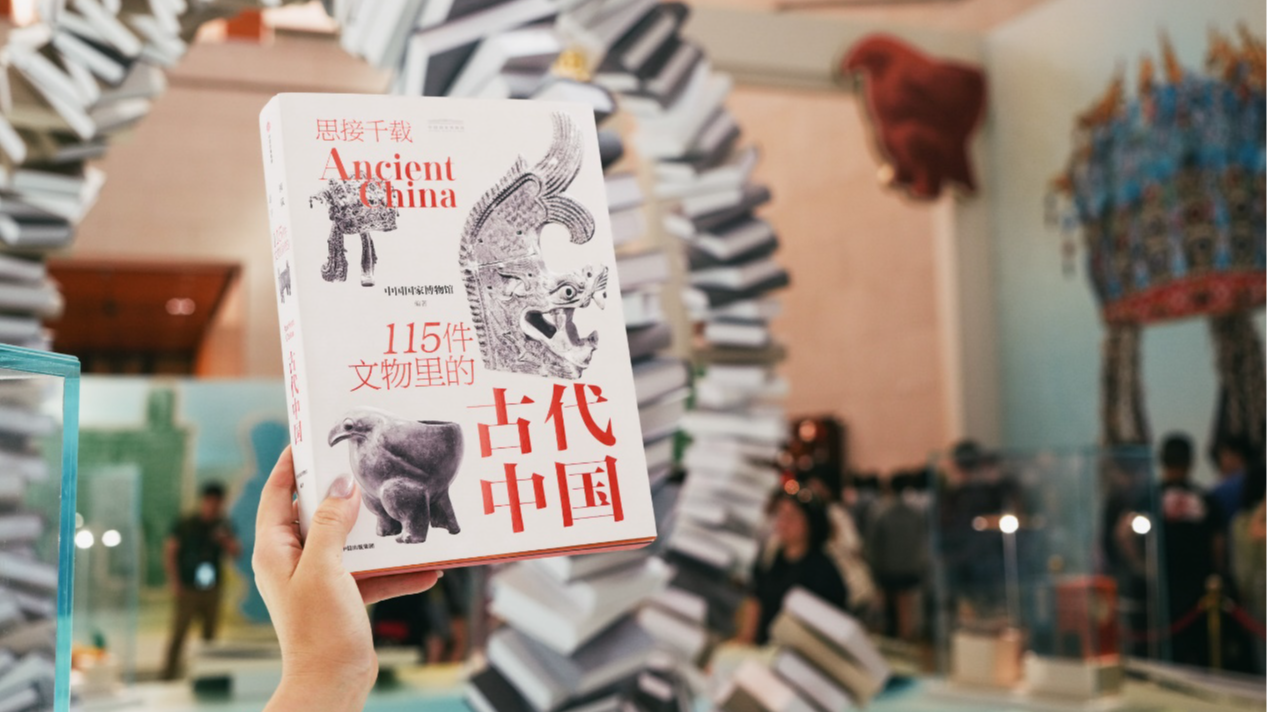By continuing to browse our site you agree to our use of cookies, revised Privacy Policy and Terms of Use. You can change your cookie settings through your browser.
I agree
Search Trends
CHOOSE YOUR LANGUAGE
- Albanian Shqip
- Arabic العربية
- Belarusian Беларуская
- Bengali বাংলা
- Bulgarian Български
- Cambodian ខ្មែរ
- Croatian Hrvatski
- Czech Český
- English English
- Esperanto Esperanto
- Filipino Filipino
- French Français
- German Deutsch
- Greek Ελληνικά
- Hausa Hausa
- Hebrew עברית
- Hungarian Magyar
- Hindi हिन्दी
- Indonesian Bahasa Indonesia
- Italian Italiano
- Japanese 日本語
- Korean 한국어
- Lao ລາວ
- Malay Bahasa Melayu
- Mongolian Монгол
- Myanmar မြန်မာဘာသာ
- Nepali नेपाली
- Persian فارسی
- Polish Polski
- Portuguese Português
- Pashto پښتو
- Romanian Română
- Russian Русский
- Serbian Српски
- Sinhalese සිංහල
- Spanish Español
- Swahili Kiswahili
- Tamil தமிழ்
- Thai ไทย
- Turkish Türkçe
- Ukrainian Українська
- Urdu اردو
- Vietnamese Tiếng Việt
Copyright © 2024 CGTN.
京ICP备20000184号
CHOOSE YOUR LANGUAGE
- Albanian Shqip
- Arabic العربية
- Belarusian Беларуская
- Bengali বাংলা
- Bulgarian Български
- Cambodian ខ្មែរ
- Croatian Hrvatski
- Czech Český
- English English
- Esperanto Esperanto
- Filipino Filipino
- French Français
- German Deutsch
- Greek Ελληνικά
- Hausa Hausa
- Hebrew עברית
- Hungarian Magyar
- Hindi हिन्दी
- Indonesian Bahasa Indonesia
- Italian Italiano
- Japanese 日本語
- Korean 한국어
- Lao ລາວ
- Malay Bahasa Melayu
- Mongolian Монгол
- Myanmar မြန်မာဘာသာ
- Nepali नेपाली
- Persian فارسی
- Polish Polski
- Portuguese Português
- Pashto پښتو
- Romanian Română
- Russian Русский
- Serbian Српски
- Sinhalese සිංහල
- Spanish Español
- Swahili Kiswahili
- Tamil தமிழ்
- Thai ไทย
- Turkish Türkçe
- Ukrainian Українська
- Urdu اردو
- Vietnamese Tiếng Việt
Copyright © 2024 CGTN.
京ICP备20000184号
互联网新闻信息许可证10120180008
Disinformation report hotline: 010-85061466




















0507 CAT zimamb.mp3
Marking 45 years of diplomatic relations between Zimbabwe and China, Zimbabwe's ambassador to China Abigail Shoniwa reflects on the journey of friendship, trust and growing cooperation. In an exclusive interview with China Africa Talk, she shares insights into how the two nations are building on their strong foundation to pursue broader partnerships in the future.
China Africa Talk: This year marks the 45th anniversary of diplomatic relations between Zimbabwe and China. How would you characterize the Zimbabwe-China friendship? Could you take us through the evolution of this friendship and share some key highlights?
Ambassador Abigail Shoniwa: Thank you so much. And you've come at the right time as we are celebrating our 45th independence anniversary. Zimbabwe and China have enjoyed very good relationship, a strong and solid foundation in their relationship, which stretches back many years ago to the pre-independence era. It's been a journey and that relationship has grown stronger and stronger. The two countries respect each other's sovereignty and support each other's core interests. I see the evolution of the relationship in three phases. The first phase would be the pre-independence phase and you are looking at around 1960 to 1980 when we got independence. The second phase will be the first half of the post-independence, 1980 up to the early 2000s. Then the next phase is what I call the third phase and you are looking at early 2000 to now.
If I can just quickly run through the phases as I see them, during the pre-independence phase, China was there with us for material support and training for our liberation war fighters and this laid a strong foundation for the relationship. So it's a friendship that is really anchored on the free Zimbabwe we enjoy today. And that support continues to today. And that phase was the root, and like a tree or a plant with strong roots, it can withstand the storms. That's how I characterize our relationship with China. It's growing stronger and stronger.
The next phase was post-independence and when we got independent in 1980, China was among the very first countries on April 18, in 1980 that established diplomatic relations with Zimbabwe. So they were there with us for the journey. This phase from 1980 to the early 2000s, saw development and consolidation of closer political relationships. The support continued and saw among others medical brigades being sent to Zimbabwe to support the new Zimbabwe's health sector. A number of projects were also undertaken.
Then the phase post the early 2000s to now, has been characterized by unprecedented levels of cooperation across virtually all sectors for economic development. We've seen increased investment by Chinese companies and government. The Zimbabwean government also received a lot of support from the Chinese government to undertake major infrastructure projects which include new airports, hospital, ICT and power stations etc. Now there are projects that are being implemented in industrial parks. These developments are critical and transformational for Zimbabwe as we look forward to achieving our goal and vision 2030. So that's how I would characterize the three phases of the evolution of our relations with China.
China Africa Talk: In what areas would you like to see deeper collaboration between the two sides?
Ambassador Abigail Shoniwa: In the new era, the areas that we see and that will be targeted for deeper cooperation were really outlined when His Excellency, President E.D Mnangagwa came for a State visit to China last year September. During the visit, His Excellency President Xi Jinping spoke of building an iron clad partnership in the new era of cooperation between the two countries. During that state visit, we had 17 agreements signed in various sectors. For us as an embassy and as a country, the stage is set. We have direction on the areas that we need to follow through. So Zimbabwe is looking forward to working closely with China to grow this cooperation. We are looking forward to implementing the agreements for a transformational development of our economy.
China Africa Talk: Specifically, when it comes to emerging sectors such as digital economy and green development, what opportunities exist for Zimbabwe and China in these areas?
Ambassador Abigail Shoniwa: The digital economy and green development are the waves of the future. China has made tremendous progress in these areas. Zimbabwe, therefore, has a lot to learn from China in these areas. To that end, China and Zimbabwe are already working together. A number of activities are under way including Huawei is assisting with building a data centre while ZTE worked with Zimbabwe's telecoms companies. There are plenty of opportunities for cooperation in these areas. These include cooperation in providing solutions to e-Business, E-Commerce, industrial digitalisation that would boost productive capacity in traditional industries, as well as remote sensing, automated farming equipment and precision agriculture, GPS-route optimisation, algorithmic economy, and the gig economy. In green development, we look forward to Chinese investors also providing green solutions to Zimbabwe's power challenges through new energy, Photovoltaic or solar panels, hydrogen energy, wind energy plants and hydro power stations.
However, as that is happening, I think there's still a lot more being in China. You see that they've gone so far ahead. So we are very hungry for cooperation that will enable us in the various sectors. We know that the digital technologies can be used in agriculture, in health, in our factories and many other sectors. We have a lot to learn from China, and that learning can be done through our cooperation, through investment from Chinese companies. I've just mentioned the two companies, but we are looking forward to having more coming in.
China Africa Talk: The world is undergoing profound transformation. In your opinion, how can countries of the Global South, including Zimbabwe and China, work together to deal with growing uncertainties and challenges?
Ambassador Abigail Shoniwa: The world is currently faced with some serious challenges, and simmering geopolitical tensions which if not managed can really turn things upside down. Right now, we are looking at the growing protectionism threatening the world order. The protectionism brought serious disruptions to global trade. It is up to countries like Zimbabwe and other like-minded countries or perhaps in the Global South, to stand together to build a fair; just and equitable economic order. We look forward to countries like big economies such as China for the leadership to rally around all others and see if we can deal with this disruption. A lot of our countries could really suffer serious consequences, if we do not find a solution. The multilateralism is under attack, and it is our hope that if we rally around the leadership of big countries like China to fight protectionism and build genuine multilateralism.
China Africa Talk: We're seeing more women take on leadership roles in governance. You are Zimbabwe's first female ambassador to China. What has your experience been like as a female ambassador? What are some of the advantages and challenges? Could you share a bit about your personal journey and what has shaped you along the way?
Ambassador Abigail Shoniwa: I must express gratitude to my President for the deployment to represent him in this country, to serve my country. It's a humbling experience and don't take it for granted. Being the first female ambassador, exciting yes, but there have been other firsts elsewhere! We always look up to other women as we did growing up.
Coming back to my history, after college, I joined civil service. And I'm grateful I moved up the ranks, and before I got deployed as an ambassador, I was Permanent Secretary of the Ministry of Industry and Commerce. I was also the first female Permanent Secretary for the Ministry of Industry and Commerce since independence. I also want to acknowledge that I have received support from colleagues and subordinates. I have received is support. I have not had a challenge during my work because I'm in a certain position. And being a woman, what I know and what I've experienced is as you rise and as a woman, you tend to work much harder because you want to prove that you can do it. Yes, you need to balance family responsibilities as well as do your best to perform. So, I'm grateful for the support that I have received, and I would want to say, once again that I'm so grateful for the opportunity to serve my country.
China Africa Talk: How do you view the growing role and impact of women in national governance and international diplomacy?
Ambassador Abigail Shoniwa: As women in the world, I think we have shown that women are equal to the task as men. And as we have been given opportunities, I believe more can be done. I don't have the actual statistics. I think we still find fewer women in leadership roles. I'm talking about the whole world. Perhaps I can come down to our region. I think that that cry is still there that we need more women in leadership roles, in boards of companies or heads of companies, in government, in international organizations etc.
China Africa Talk: Zimbabwe's Kirsty Coventry has made history as the first woman and first African to lead the International Olympic Committee. What does her achievement mean for Zimbabwe, for Africa and for women around the world?
Ambassador Abigail Shoniwa: Oh yes, she did it and well done! It's a sign that it can be done. We know her history and as an Olympian breaking records and a government minister. Not only is she a first woman to do it, she is first African and a young woman. And support is key. And Zimbabwe is very excited. She's done us proud. She is done Africa proud. She is done us women proud.
China Africa Talk: Later this year, China will host the Global Leaders' Meeting on Gender Equality and Women's Empowerment in Beijing, marking the anniversary of the 1995 World Conference on Women in Beijing. What are your expectations for this event?
Ambassador Abigail Shoniwa: We've read about this anniversary coming in the latter half of this year. I think it will be a time for reflection. I've just been commenting that perhaps more needs to be done for women. The conference would probably be taking stock of where are we all these years since the 1995 conference. And what have we done? What have we not done and what can be done going forward? So I think it's a great moment for taking stock of what has been achieved of the objectives or resolutions set out. And then we work for the next 30 years.
China Africa Talk: What have you observed on China's development during your tenure here? Can you share one or two stories?
Ambassador Abigail Shoniwa: It will be too many stories. The pace of development that you observe when you're in this country is just amazing. I am privileged. I had the opportunity of serving at this embassy as an officer in early 2006 to 2009. And I'm coming back here 15 years later. And what you see and what was then is just amazing. There's so much change. So it becomes very difficult for me to just isolate one item. But perhaps is the technology. I think the pace of technology and use of AI is outstanding. And how it is being used to make life easy and how it has been disseminated to even old people or to the rural communities is amazing. One other observation is that I've traveled a bit in the provinces by train and by air, but more by train. The country is green. The way trees have been planted. So many irrigation schemes around and people are busy. So it's quite exciting. But there is a lot to learn. So we are really looking forward to cooperating with China, but are also looking forward to more investors coming to Zimbabwe and invest in the various areas that I've mentioned. And we are also very curious in learning their technologies, sharing those and see how far we go.
China Africa Talk: What are you some of your key priorities as Zimbabwe's Ambassador to China? What would you like to accomplish during your term?
Ambassador Abigail Shoniwa: During my term, in brief, I would like to see more investments, more investors from China to Zimbabwe, who will enhance productivity, value addition of products and increase exports of goods from Zimbabwe to China. We're looking forward to increase the exports. The other issue is we are looking forward to a boost in tourism. Zimbabwe has wonderful destinations for tourism, wonderful heritage, culture, and wonderful people. We are looking forward to investors in tourism infrastructure. There are a lot of beautiful and a variety of tourism infrastructure in China such as hotels, conference centers, etc. I'm looking forward to investors going in tourism and tourism figures arising.
There is also a lot of cooperation in cultural cooperation, but I would want to mention education. We are looking forward to increase cooperation in the education sector, so that our people and our students can get capacitation. Not just Zimbabwean students, even those that are coming to work are refreshed and learn new things here. The list is getting long enough. The list is getting longer. We'll try our best. We are receiving a lot of support. We are we've been engaging in a number of companies and a number of provincial authorities. We will do it. We'll do our best.